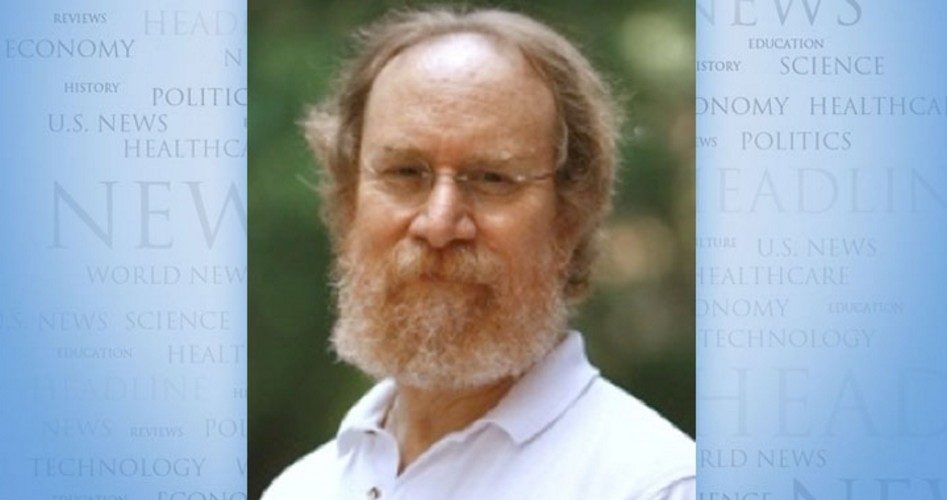
The Supreme Court decision upholding the health-insurance mandate in the Patient Protection and Affordable Care Act (ObamaCare) has an Alice-in-Wonderland feel to it. As Lewis Carroll wrote in Through the Looking Glass,
“When I use a word,” Humpty Dumpty said, in rather a scornful tone, “it means just what I choose it to mean — neither more nor less.”
Chief Justice John Roberts’s opinion holds that the penalty for not complying with the mandate is both a tax and not a tax — depending on the question. If the question is whether someone may sue to strike down the mandate, the court says yes, because the penalty is not a tax. Under the Tax Anti-Injunction Act (first passed in 1867 but since updated), one may not ask for an injunction against a tax before it has been enforced. One must wait to be taxed, request a refund from the IRS, and if turned down, then sue the government. In the ObamaCare case, the Court denied such an attempt to have the challenge dismissed by declaring the penalty not a tax.
But only for purposes of the Tax Anti-Injunction Act. It was another story when the question was whether the mandate is constitutional.
The government made two arguments in defense of its mandate. The primary argument was that Congress may require the purchase of insurance under the Commerce Clause. This clause, which empowers Congress “To regulate commerce … among the several States,” has long been interpreted to include even activities that merely affect interstate commerce. Roberts and four other members of the court (Antonin Scalia, Anthony Kennedy, Clarence Thomas, and Samuel Alito) did not buy this argument. “The Framers gave Congress the power to regulate commerce, not to compel it,” Roberts wrote. He rebutted in great detail the Obama administration’s many arguments that penalizing people for not buying insurance was a way to regulate interstate commerce.
Fine. It does seem a stretch to claim that forcing people to engage in commerce (buying insurance) amounts to regulating commerce. As Roberts said, regulating something presupposes the existence of that something. But the mandate seeks to create commercial activity where it does not exist.
Interestingly, Roberts’s four allies on this point were actually in the minority of the overall case. The other four members of the majority (Stephen Breyer, Elena Kagan, Sonia Sotomayor, and Ruth Bader Ginsburg) found the mandate perfectly consistent with the Commerce Clause.
So how did Roberts form a majority with those four to uphold the mandate?
The government had a backup argument for its claim, and this one found favor with the five. The government argued that should the Commerce Clause argument fail, the court can think of the mandate penalty as — wait for it — a tax! It’s long been established in the law that Congress may regulate action (or inaction) by taxing it — even if it may not constitutionally regulate it directly.
Voila! What seemed unconstitutional became constitutional. The penalty (the term used in the law) now is a tax, even though earlier in the opinion the Court said the penalty is not a tax. Justice Humpty Dumpty has spoken.
Strangely, some opponents of ObamaCare are rejoicing over the decision. Randy Barnett, the constitutional law professor at Georgetown University Law Center who is credited with formulating the case against the government’s Commerce Clause argument, wrote an op-ed in the Washington Post declaring, “We Lost on Health Care. But the Constitution Won.” How’s that?
Barnett’s point is that Roberts’s affirmation of limits to the Commerce Clause struck a historic blow for individual liberty and against government power. Considered in isolation, Roberts’s refusal to include abstention from buying insurance under the rubric of “interstate commerce” could be applauded. Unfortunately, Roberts didn’t leave the stage after singing that aria. He went on to say that other constitutional grounds exist on which the government can penalize us if we fail to buy insurance.
So where’s the victory for liberty? There is none here.
The court has long held that the government may use its “all-embracing” constitutional taxing power to regulate our conduct. To the person being forced, does it really matter which constitutional clause is invoked?
Sheldon Richman is senior fellow at The Future of Freedom Foundation and editor of The Freeman magazine.


